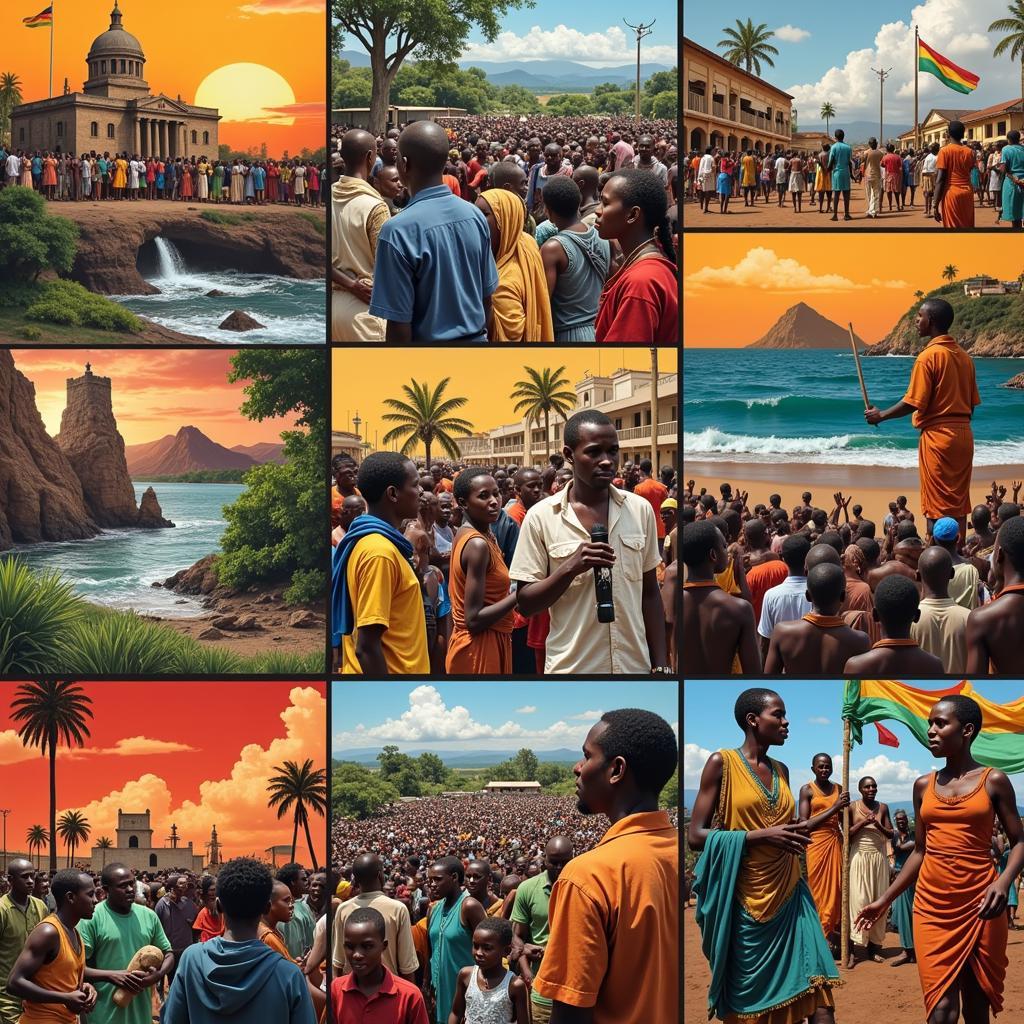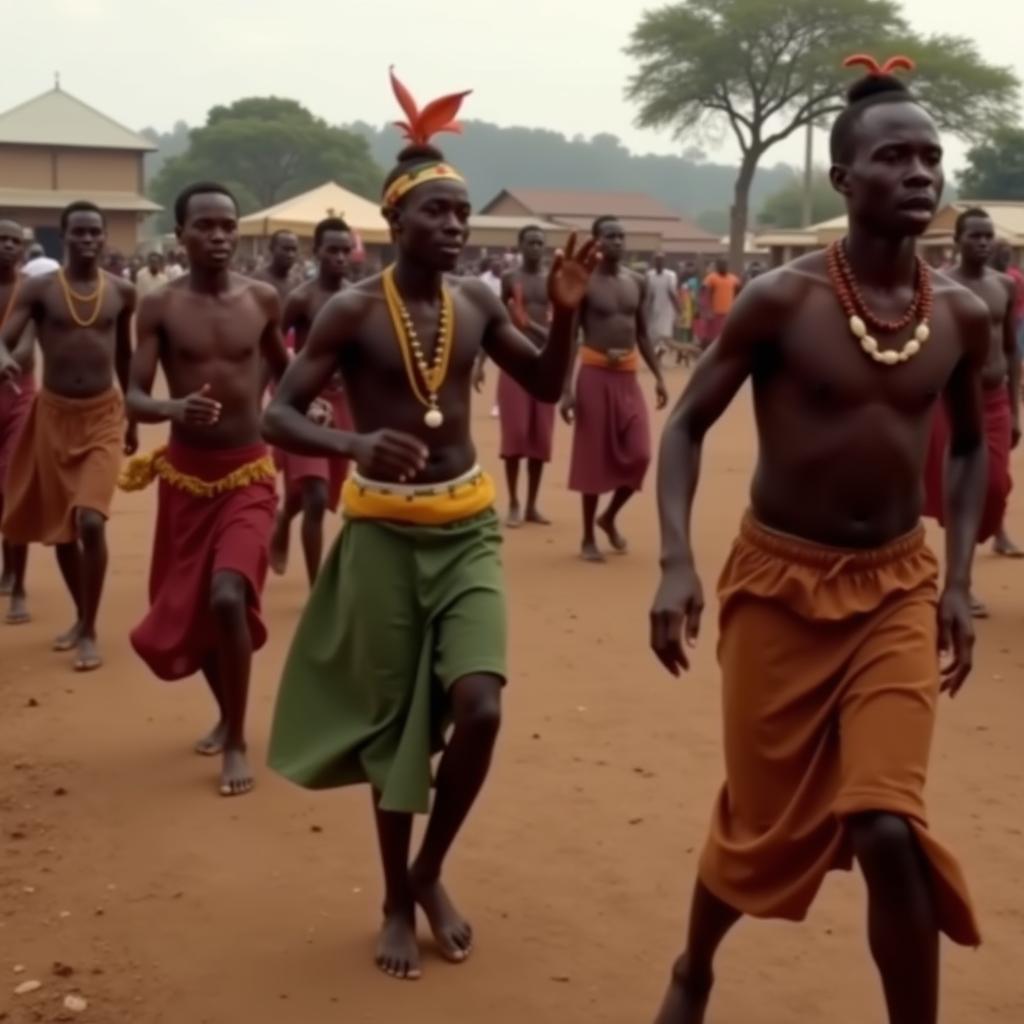African Culture Before and After European Colonization
African Culture Before And After European Colonization experienced a dramatic shift. The arrival of Europeans irrevocably altered the trajectory of the continent, leaving an indelible mark on its social, political, economic, and artistic landscapes. Understanding this transformation is crucial to appreciating the complexities of modern Africa.
The Rich Tapestry of Pre-Colonial Africa
Before European colonization, Africa was a continent of immense diversity, boasting a vibrant mosaic of cultures, languages, and traditions. From the ancient kingdoms of Egypt and Kush to the sophisticated empires of Ghana, Mali, and Songhai, Africa was a land of innovation and intellectual ferment. Indigenous knowledge systems thrived, encompassing intricate agricultural practices, advanced metallurgy, and sophisticated medicinal techniques. African societies were governed by complex social structures, often based on kinship ties, age grades, and religious beliefs. Art, music, and storytelling played integral roles in preserving history, transmitting values, and fostering community cohesion. african history documentary provides valuable insights into these fascinating historical narratives.
The Disruptive Impact of European Colonization
The arrival of European powers in the late 15th century marked a turning point in African history. Driven by economic greed and a sense of racial superiority, European colonizers embarked on a systematic campaign to exploit Africa’s resources and subjugate its people. The transatlantic slave trade decimated populations, tearing families apart and causing immense suffering. The arbitrary imposition of colonial borders disregarded existing ethnic and linguistic boundaries, sowing the seeds of future conflicts. Traditional political systems were dismantled and replaced by colonial administrations, often characterized by authoritarian rule and a lack of local participation.
Economic Exploitation and its Lasting Consequences
Colonization fundamentally reshaped African economies. Traditional agricultural practices were disrupted as land was seized for cash crop production, leading to food insecurity and dependence on European markets. The extraction of mineral resources enriched European powers while leaving African nations impoverished. The introduction of Western education systems, while providing some benefits, often undermined indigenous knowledge systems and promoted a sense of cultural inferiority. african homosexual tradition offers a different perspective on pre-colonial social structures, challenging some common assumptions.
African Culture in the Post-Colonial Era
The struggle for independence in the mid-20th century marked a new chapter in African history. However, the legacy of colonialism continued to cast a long shadow over the continent. Newly independent nations faced the daunting task of rebuilding their economies, establishing stable political systems, and forging a new national identity. Many African countries grappled with ethnic tensions, political instability, and economic challenges.  Post-colonial African nations facing challenges in rebuilding economies, establishing stable political systems, and forging new national identities.
Post-colonial African nations facing challenges in rebuilding economies, establishing stable political systems, and forging new national identities.
Reclaiming Cultural Heritage and Forging New Paths
Despite the enduring challenges, there has been a resurgence of interest in reclaiming and celebrating African cultural heritage. Artists, writers, and musicians are drawing inspiration from traditional forms while exploring contemporary themes. Efforts are underway to preserve indigenous languages, promote cultural tourism, and integrate traditional knowledge systems into modern education. african independence lesson plan provides valuable resources for educators seeking to explore this crucial period.
“The resilience of African culture is a testament to the strength and creativity of its people,” observes Dr. Abena Serwaa, a renowned Ghanaian historian. “Despite the devastating impact of colonization, African cultures have not only survived but have also evolved and adapted to the changing times.”
Conclusion: African Culture: A Story of Resilience and Transformation
The impact of European colonization on African culture was profound and far-reaching. While colonization disrupted traditional ways of life, it also sparked a process of cultural adaptation and innovation. Understanding the complexities of African culture before and after European colonization is essential for appreciating the continent’s rich history, its present challenges, and its future potential. african history in tamil provides access to historical narratives for Tamil-speaking audiences. Let us continue to explore and celebrate the diverse tapestry of African cultures, recognizing their enduring strength and resilience.
FAQ
- What were some major pre-colonial African empires?
- How did the transatlantic slave trade impact African societies?
- What were the economic consequences of European colonization in Africa?
- How did colonization affect African political systems?
- What are some examples of cultural revival in post-colonial Africa?
- What are the long-term impacts of colonization on African culture?
- How can we learn more about pre-colonial African history?
Do you have other questions? Check out african country begins with the fifth vowel for a fun fact about African geography.
When you need support, please contact us at Phone Number: +255768904061, Email: kaka.mag@gmail.com Or visit us at Mbarali DC Mawindi, Kangaga, Tanzania. We have a 24/7 customer service team.

